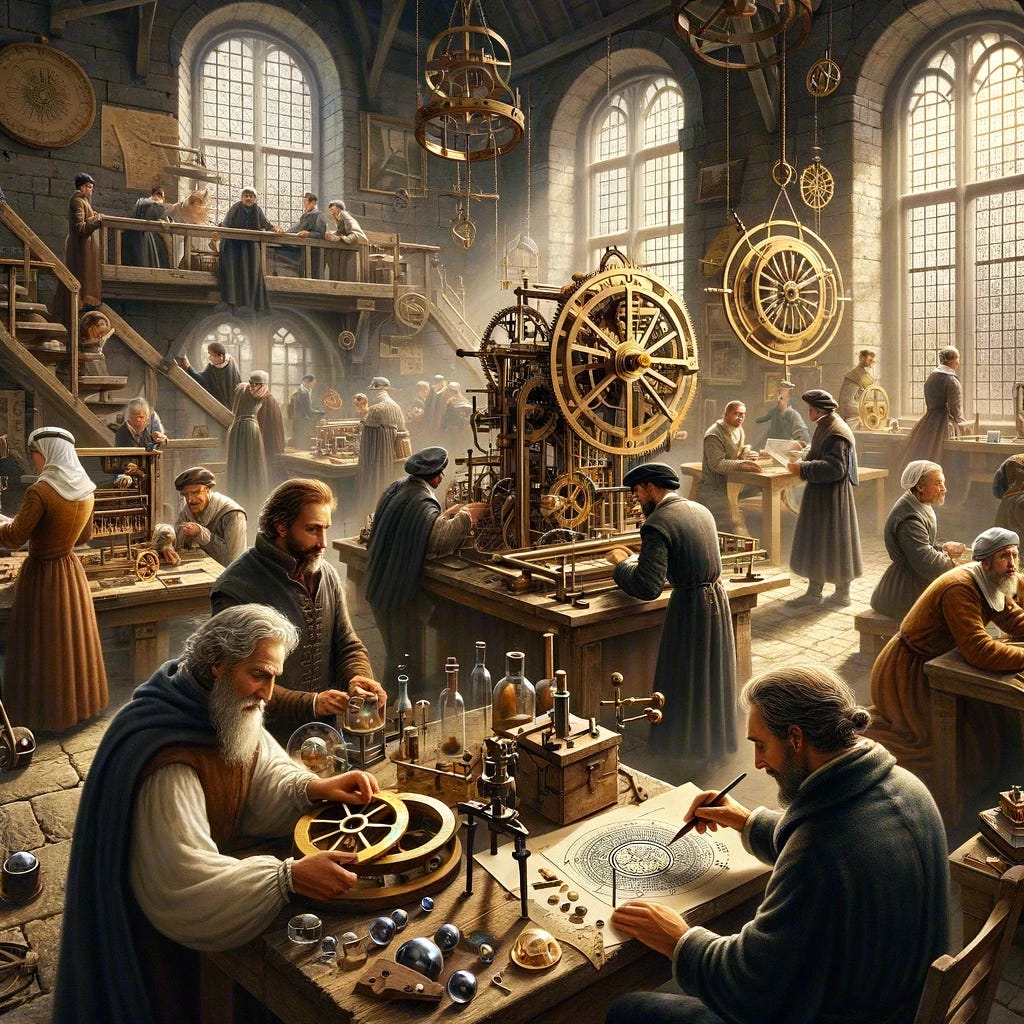In his famous essay, “The Age of Reason,” American Founding Father and deist, Thomas Paine, sharply critiqued organized religion in general, and Christian theology in particular. He wrote that
however unwilling the partizans [sic] of the Christian system may be to believe or to acknowledge it, it is nevertheless true, that the age of ignorance commenced with the Christian system…It is owing to this long interregnum of science, and to no other cause, that we have now to look back through a vast chasm of many hundred years to the respectable characters we call the Ancients…But the Christian system laid all waste; and if we take our stand about the beginning of the sixteenth century, we look back through that long chasm, to the times of the Ancients, as over a vast sandy desert, in which not a shrub appears to intercept the vision to the fertile hills beyond.[1]
By “age of ignorance,” Paine was referring to the medieval period of western Europe (approximately 476 to 1450) or a portion thereof.[2] Here he was parroting a centuries-old historical myth that says Christianity was an obstacle to the advancement of knowledge–including scientific progress–during these centuries. This idea stubbornly persists in popular culture thanks to the writings of some public intellectuals, such as famous astronomer and cosmologist Carl Sagan, who have been ignorant of medieval Christian attitudes and learning, despite extant scholarship arguing to the contrary. Likewise, prominent twentieth century atheist Ruth Hermence Green, who was known for her scathing yet pithy critiques of Christianity, once quipped: “There was a time when religion ruled the world. It is known as the Dark Ages.”[3] This statement and others like it have been immortalized as internet memes and talking points that help perpetuate a false narrative. In fact, respected historians of science and religion have done extensive work on this topic and have shown that, not only was there significant intellectual activity during the medieval period that belies the common pejorative term “Dark Ages,” but Christians and their institutions played a vital role in the preservation of knowledge and the rise of formal education during a time fraught with barbarism, political volatility, and the decline of urbanization.
The fact is, the medieval period had its fair share of innovators and inventors. Historian of science James Hannam points out that medieval Europeans improved upon (or developed novel applications for) technologies that originated in the Far East, such as the compass, gunpowder, and moveable type printing, and produced many important inventions of their own, such as the mechanical clock, windmill, optical lenses, and various machinery.[4] Medieval scholars also laid the necessary foundation for the rise of modern science once they gained access to Latin translations of classical Greek works such as Aristotle’s major treatises on natural philosophy.
Granted, the recovery of the Aristotelian corpus wasn’t completed until the thirteenth century, after a period of cultural decline, but this decline wasn’t caused by some sort of ecclesial suppression of learning. Rather, the warfare and fragmentation following the fall of Rome caused Western Europe to lose much of its contact with the Greek East and thus its access to a great deal of the classical Greek tradition. At the same time, widespread illiteracy among the general population exacerbated the post-Empire disintegration. Despite these challenges, and perhaps because of them, Christian monasteries worked diligently to preserve, develop, and teach an intellectual tradition based upon the precious scholarly resources they had. This included the writings of some early church fathers, whose work reflected their extensive education in Greek thought (which included natural philosophy).
Keep reading with a 7-day free trial
Subscribe to The Worldview Bulletin Newsletter to keep reading this post and get 7 days of free access to the full post archives.



